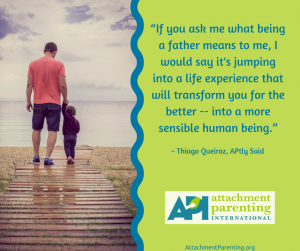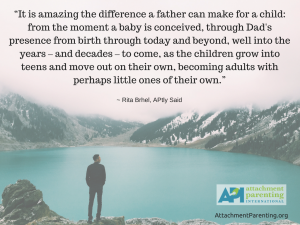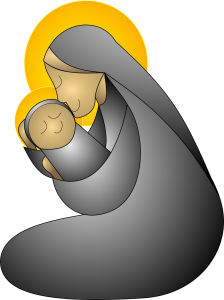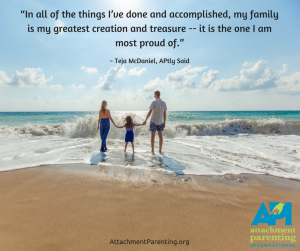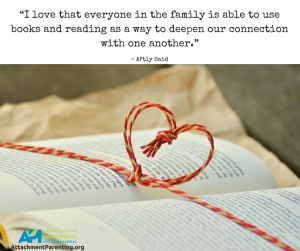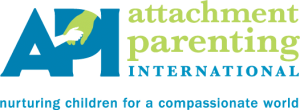Category: Presence
The difference a father can make
Connection after breastfeeding
One of the finer things in life is to be able to enjoy some luxury when you rest, and for human beings, rest is a necessary thing when we want our bodies to recharge and operate in an optimal capacity. That is why there really is no limit to splurging on stuff when you want to be comfortable in your bedroom. In fact, one of the things that you can splurge on is a back rest pillow that is not only practical, but luxurious in its capacity.
There are many kinds of backrest pillow available. You can take your pick among Amazon’s many choices. However, for the purpose of achieving a dual goal in comfort and therapeutic benefits, then the typical back rest pillow will have to have more features built into it.
One kind of backrest support that you can opt for is the one specifically designed to help improve your backs condition by ergonomic design to help with your posture and support your lumbar region. There are many people who suffer from chronic back pain, mainly due to poor posture, and sometimes from injury. Much of the advice a therapist or chiropractor will give to a patient will mean having to adjust previously unfitted pillows, beds, and cushions that do not provide support, to orthopedic pillows and mattresses that support the joints and the natural curvature of the body. The perfect backrest support with can mean that people can actually relax and not feel bodily pain after resting for a while, as well you can use stretches and movements to reduce you body pain, for this you can check Erase my back pain reviews and with the help of the professionals find the right technique to solved you body pain.
My 3-year-old daughter recently found our old nursing pillow from this pillow collection in the closet. It had been about a year since we finished nursing, so I was surprised when she said, “Remember I used to lay on this?”
She didn’t remember actually nursing, though, and when I told her that’s how I used to feed her, she had a lot of questions like, “Was the food on the floor?” I explained what nursing was, and she smiled and asked sweetly, “Can we do that now?”
While we couldn’t nurse, I did set the pillow on my lap and let her climb up on it. She lay there smiling up at me and started twirling my hair, her favorite relaxing activity.
I hear a lot of moms who are starting to wean worrying that they’ll be sad once they’re done nursing, or that they’ll miss this time for connection.
My daughter and I have found many other ways of bonding as she’s grown older. There are more “I love yous” and kisses from her and more time for playing her favorite activities one-on-one. We still lie together often and bedshare part of the night. While these activities aren’t quite replacements for nursing, they are wonderful ways that we can keep a strong attachment.
After she laid on the nursing pillow on my lap, we were able to play together for about 30 minutes while her brothers were playing on their own. She created a game for us where she’d pretend that it was nighttime and we would pretend to sleep, sharing a pillow and cuddling under the same blanket.
It’s nice for us to reminisce about the time we nursed and to remember that it was one of the ways that our attachment developed in her earliest years, but we’re still enjoying other opportunities for connection now. And I know that even when she’s older and these games are over, there will be other things to replace them, such as times where we can talk about her day at school or other one-on-one activities we can do together.
————-
Inspired to read more about breastfeeding?
Nature’s Case for Breastfeeding
A story of working and breastfeeding, and staying determined
Editor’s pick: To promote breastfeeding is to promote Attachment Parenting
Morning cuddles: a story of child-led weaning
When Your Partner Wants You to Wean: Heart Advice for Nursing Mothers
5 tips for a strong nursing relationship while working away from home
Of all I’ve accomplished in my life…
My Attachment Parenting support group made all the difference
Editor’s note: Parent support makes a world of difference — when we strengthen families, we nurture and fulfill our children’s need for trust, respect, and affection, and ultimately provide a lifelong foundation for healthy, enduring relationships. Sharing our parenting experiences — the difficult, trying, joyous, and happy ones — with other like-minded parents can help us feel understood and supported. Attachment Parenting International (API) is dedicated to supporting families in realizing the most important job there is –raising compassionate kids who will shape the future of our world. Click here to find an API Support Group near you.
It was our usual afternoon trip to the library before picking up my oldest son from school. We typically go once a week and bring a large, reusable bag to fill with books — only on that day, I took a smaller bag, which I thought was a really minor change. But when my almost 4-year-old son realized that I’d done something that, in his mind, was completely different from what we always do, he wanted me to go home to get usual bag.
I could tell he was sad and close to tears, but he was trying to manage his emotions and to stay calm as I empathized with him and explained that it wasn’t possible to rectify the situation. After a couple minutes, he started to get sadder and louder.
Still, I managed to stay calm. It felt like a real success for me — completely keeping my cool even in a public setting, responding to him with empathy, staying connected, and not punishing or lecturing him for his emotions. Since we were in a library, I wanted to get out of there quickly so we didn’t disturb people. Unfortunately, trying to make that happen was quite a challenge for me as a mom. My younger daughter was with us and was happily selecting books from the shelf. I had to make the choice of checking out her books while my toddler cried and fought, or just leaving without them, which might upset her as well.
There were several other people around who seemed were watching me, including a few moms who were talking nearby, a mother with a young child playing calmly, a librarian, and an older man. As I struggled to the door with a baby in one arm and a crying toddler in the other, I didn’t worry if they were judging me. I knew I was handling the situation the best I could, and I was proud of that, but I did get upset that no one was able to offer me any help.
I felt that I could barely manage to open the door and get the kids to the car on my own, but somehow, I did. In the car, despite feeling pleased with my patience and ability to remain calm, I felt an overwhelming sense of loneliness. I realized just how alone I had been in that challenging situation, and I couldn’t help but cry.
Afterwards, I reached out to the other parents in my API Support Group about my experience. The amount of support and love I got from the other parents was amazing. Many praised my ability to stay calm in a stressful situation. Several pointed out that strangers are often unsure of how to help or unsure whether help is even wanted. Some shared that they had similar experiences and could relate. And one person also said that she wished she’d been there to help, to hold the door or to put her arm around me for support.
She told me, “You are not alone anymore,” which is something I wish all parents could hear when they’re struggling in moments like this.
Reading can deepen family connection
Cuddling therapy, anyone?
Babies are born with needs for physical contact, affection, security, stimulation, and movement — urgent and intense — and yet, depend completely on others to meet them.
Nurturing touch is a way to meet all of these needs at once.
Mothers and fathers are encouraged to provide ample nurturing touch from birth on to promote the healthiest child development. But what about newborns born premature or ill, who must remain in the hospital long-term?
Some hospital units, like St. Michael’s in Toronto, Canada, featured in the video below, train and provide volunteers who hold, sing to, and love on in-patient babies. These volunteers are aptly called Cuddlers.
The newborns may have been born premature or have medical needs that require them to stay in the NICU. Or, these babies may have been born to mothers with mental health or addiction issues. Some of these babies may be suffering from drug withdrawal or fetal alcohol syndrome.
But all of these babies benefit from nurturing touch and affection. The medical community notes that hospitalized babies gain weight faster, have improved infant mental health, and typically shorter hospital stays.
Mothers’ thoughtful expressions: What is the best parenting advice you would offer another mom?
 The experience of being a mom can be challenging, exhausting, rewarding, and inspirational. There are plenty of trained experts and professionals who lend their guidance on ways to navigate through the complex web of motherhood, but oftentimes, the most grounded support comes from those who have been down in the trenches — so to speak: everyday mothers.
The experience of being a mom can be challenging, exhausting, rewarding, and inspirational. There are plenty of trained experts and professionals who lend their guidance on ways to navigate through the complex web of motherhood, but oftentimes, the most grounded support comes from those who have been down in the trenches — so to speak: everyday mothers.
Today, we bring you words of advice from mothers who shared with us the wisdom and insight they acquired along the way, on their motherhood path.
What is the best parenting advice you would offer another mom?
Kassandra Brown: “My best parenting advice is to allow your perspective to broaden, your heart to soften, and your mind to notice how lucky you are to have exactly the children you have. What we believe, we perceive. By believing it, you will see evidence more and more often that proves how true it is that you are lucky to have your children.”
Lisa Feiertag: “The advice that I would share with other moms is how important it is to remain flexible and to know that everything will change even when you think it is all static. Growth naturally causes things to shift, and it is a lot easier if you are moving in that flow instead of resisting it. Also, try to not take anything personally or to personalize your child’s actions and emotions. When you find yourself feeling upset look into why that is. What is being triggered internally? Parenting is an opportunity to heal all our unmet childhood wounds, which is one of the reasons why it is not an easy job.”
Megan Bell: “Let go of ‘should’ and truly connect with and listen to your children. They are our best teachers. Offer them what they need when they need it, and know they won’t need it forever.”
Rochelle Kipnis: “Our children grow up so fast, so cherish every moment you get with them. Make memories and know that they grow up too quickly. Hold on to the moments and take it slow. Enjoy every day that you’re blessed to be here on earth with your children.”
Effie Morchi: “Above all, listen to your heart and trust your instincts; they are there for a key reason. When you are faced with a challenging moment, take a deep breath and think, ‘that too shall pass…’ and when you are faced with a blissful moment, take a deep breath, and let it wash over you — it will serve as nourishment for the road ahead.”
Jillian Amodio: “Honestly, there’s a lot of advice floating around. Five different people will give you 5 different answers. The best advice I can give you is truly none at all. Just follow your heart, it will never lead you wrong. Mamas, you are wiser than you will ever know, more important than you will ever realize, and cherished beyond measure. Hug those little ones and love yourself, because even when you don’t feel like it, I’ll bet that you are doing an AMAZING job.”
Kelly Shealer: “My advice to other moms is to trust your instincts. Trust what feels right for you and your children. You know your child best, so you can give them a unique gife that make them really happy.”
Inga Bohnekamp: “It is a lot about connection and trust. Find ways to over and over again connect with your child — and yourself. Try to see her with fresh, curious eyes every day and try not to make too many preconceived assumptions. She will continue to surprise, to amaze, and to challenge you in her very own unique ways as she grows up and faces the challenges of the world she lives in. Connect with yourself, with your intuition, with your very own inner wisdom. Most of the answers you will ever need are already inside of you, somewhere — you might just need to uncover them and then listen to them, which can be scary. And while, of course, trusted sources of support are always important — repeat after me: We cannot do it all by ourselves! — always remember that every child, every parent, every situation, and every relationship is different and changes from moment to moment, which makes it highly unlikely for a ‘one size fits all’ approach to actually be a good fit.”
Katelynne Eid: “Trust your gut. With each little one, I’ve learned to trust myself even more. There are endless information and opinions out there, but nothing beats a mother’s intuition. Even if you don’t think you have it, I promise you do!”
Shoshana Hayman: “Although modern society has devalued the role of mothers, know that your role as a mother is of paramount value in the world. No one can be for your children what you are to them — their primary attachment figure, which gives the optimal context for healthy human development. Teach them lovingly, both your boys and your girls, that the most important roles they will fulfill one day will be to parent their own children. Mothers need to be confident in believing that nurturing their children, throughout the years that they are growing up, helps shape a healthy and peaceful society more than any daycare, school, or educational program ever can.”
————
A Mother’s love is a gift that gives forever and her legacy is life
In gratitude, consider a tribute to a Mother in your life while helping a mother in need of support at the same time.
It’s a gift that that keeps on giving because you help mothers receive much needed information and support.
This is the heart of API.
We invite you to share a gift of love that gives on in her honor.
Happy Mother’s Day from Attachment Parenting International
————

